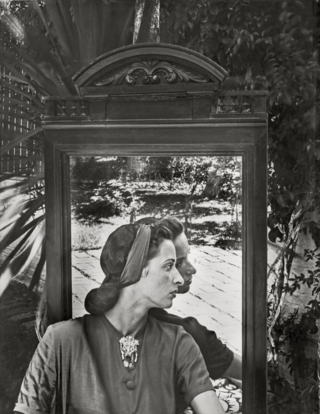Related Research Articles

Raphael Aloysius "R. A." Lafferty was an American science fiction and fantasy writer known for his original use of language, metaphor, and narrative structure, Lafferty also wrote a set of four autobiographical novels, a history book, and several novels of historical fiction.

Jules Henri Poincaré was a French mathematician, theoretical physicist, engineer, and philosopher of science. He is often described as a polymath, and in mathematics as "The Last Universalist", since he excelled in all fields of the discipline as it existed during his lifetime. Due to his scientific success, influence and his discoveries, he has been deemed "the philosopher par excellence of modern science."

The French Academy of Sciences is a learned society, founded in 1666 by Louis XIV at the suggestion of Jean-Baptiste Colbert, to encourage and protect the spirit of French scientific research. It was at the forefront of scientific developments in Europe in the 17th and 18th centuries, and is one of the earliest Academies of Sciences.

Ferdinand Frédéric Henri Moissan was a French chemist and pharmacist who won the 1906 Nobel Prize in Chemistry for his work in isolating fluorine from its compounds. Moissan was one of the original members of the International Atomic Weights Committee.
Orbit was a series of anthologies of new science fiction edited by Damon Knight, often featuring work by such writers as Gene Wolfe, Joanna Russ, R. A. Lafferty, and Kate Wilhelm. The anthologies tended toward the avant-garde edge of science fiction, but by no means exclusively; occasionally the volumes featured nonfiction critical writing or humorous anecdotes by Knight. Inspired by Frederik Pohl's Star Science Fiction series, and in its turn an influence on other original speculative fiction anthologies, it ran for over a decade and twenty-one volumes, not including a 1975 "Best of" collection selected from the first ten volumes.

HMS Thunder Child is a fictional ironclad torpedo ram of the Royal Navy, destroyed by Martian fighting-machines in H. G. Wells' 1898 novel The War of the Worlds whilst protecting a refugee rescue fleet of civilian vessels. It has been suggested that Thunder Child was based on HMS Polyphemus, which was the sole torpedo ram to see service with the Royal Navy from 1881 to 1903.
A vignette is a French loanword expressing a short and descriptive piece of writing that captures a brief period in time. Vignettes are more focused on vivid imagery and meaning rather than plot. Vignettes can be stand-alone, but they are more commonly part of a larger narrative, such as vignettes found in novels or collections of short stories.

Past Master is a science fiction novel by American writer R. A. Lafferty, first published in 1968. The novel follows the attempt of a future Utopian society in preventing its decline, by bringing Sir Thomas More to the year 2535.

Escape Pod is a science fiction podcast magazine produced by Escape Artists, Inc. It proclaims itself "the world's leading science fiction podcast". The present co-editors are Mur Lafferty and S. B. Divya.

Mur Lafferty is an American podcaster and writer based in Durham, North Carolina. She was the editor and host of Escape Pod from 2010, when she took over from Steve Eley, until 2012, when she was replaced by Norm Sherman. She is also the host and creator of the podcast I Should Be Writing. Until July 2007, she was host and co-editor of Pseudopod. She was the Editor-in-Chief of the Escape Artists short fiction magazine Mothership Zeta until it went on hiatus in 2016.

Leander Hamilton McCormick was an American writer, inventor, art collector and sculptor.
McFarland & Company, Inc., is an American independent book publisher based in Jefferson, North Carolina, that specializes in academic and reference works, as well as general-interest adult nonfiction. Its president is Rhonda Herman. Its former president and current editor-in-chief is Robert Franklin, who founded the company in 1979. McFarland employs a staff of about 50, and as of 2019 had published 7,800 titles. McFarland's initial print runs average 600 copies per book.
Events from the year 1914 in France.

The Société Chimique de France (SCF) is a learned society and professional association founded in 1857 to represent the interests of French chemists in a variety of ways in local, national and international contexts. Until 2009 the organization was known as the Société Française de Chimie.

SF12 is a science fiction anthology edited by Judith Merril first published in 1968.

Paris: A Poem is a long poem by Hope Mirrlees, described as "modernism's lost masterpiece" by critic Julia Briggs. Mirrlees wrote the six-hundred-line poem in spring 1919. Although the title page of the first edition mistakenly has the year 1919, it was first published in 1920 by Leonard and Virginia Woolf at the Hogarth Press. Only 175 copies of the first edition were distributed. In 2011, the poem was reprinted in an edition of Mirrlees's Collected Poems, edited by Sandeep Parmar, which helped create more critical interest.
The Great Unrest, also known as the Great Labour Unrest, was a period of labour revolt between 1911 and 1914 in the United Kingdom. The agitation included the 1911 Liverpool general transport strike, the Tonypandy riots, the National coal strike of 1912 and the 1913 Dublin lockout. It was United Kingdom's most significant labour unrest since the Industrial Revolution but is not as widely remembered as the 1926 general strike. The period of unrest was labelled "great" not because of its scale, but due to the level of violence employed by both the state and labourers; including deaths of strikers at the hands of police and sabotage on the part of the workers.
Faye Hammill FRSE is a professor in the University of Glasgow, specialising in North American and British modern writing in the first half of the twentieth century, what is often called 'middlebrow'. Her recent focus is ocean liners in literature. She is a Fellow of the Royal Society of Edinburgh (2021).

Margarita Guerrero was an Argentine dancer and writer. She is known for her collaborations with Jorge Luis Borges, with whom she co-wrote and edited Book of Imaginary Beings and El "Martín Fierro". As his eyesight failed, Borges relied increasingly on collaborators in creating his work, and Guerrero's role in Book of Imaginary Beings in particular is thought to have been that of a researcher and compiler.
Empathy, as an interdisciplinary concept, usually studied within social and psychological context, plays an important role in consuming literature and fiction in particular. This concept is known as narrative empathy. Defined by Taylor et al. in 2002–2003, individuals experience narrative empathy when they are able to feel with, take the perspectives of, or experience a simulation with the likeness thereof a character within that narrative. When looking at empathy in literature, there are two main concepts that can be looked at. Learning empathy through literature, or narrative empathy, is more thoroughly and academically studied than narratives of empathy, which are prevalent across various types of fiction.
References
- ↑ Barnett, David (13 August 2014). "RA Lafferty – the secret sci-fi genius more than ready for a comeback". the Guardian. Retrieved 20 July 2018.
- ↑ Picherit, Hervé G. (2018). "A War of Sensibilities: Recovering Henri Barbot's Paris en feu (Ignis ardens)". Journal of Modern Literature. 41 (4): 143–160. doi:10.2979/jmodelite.41.4.10. JSTOR 10.2979/jmodelite.41.4.10.